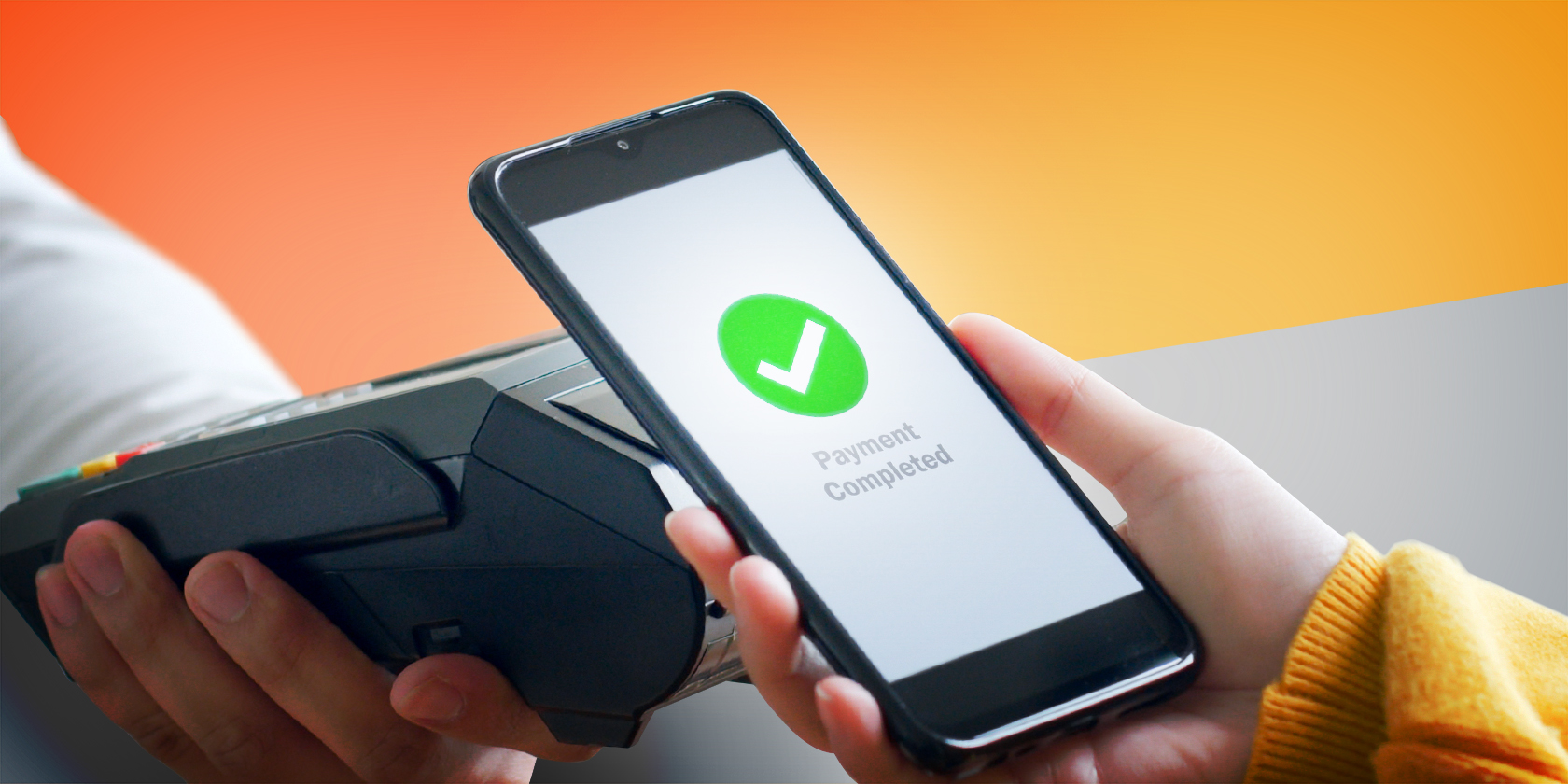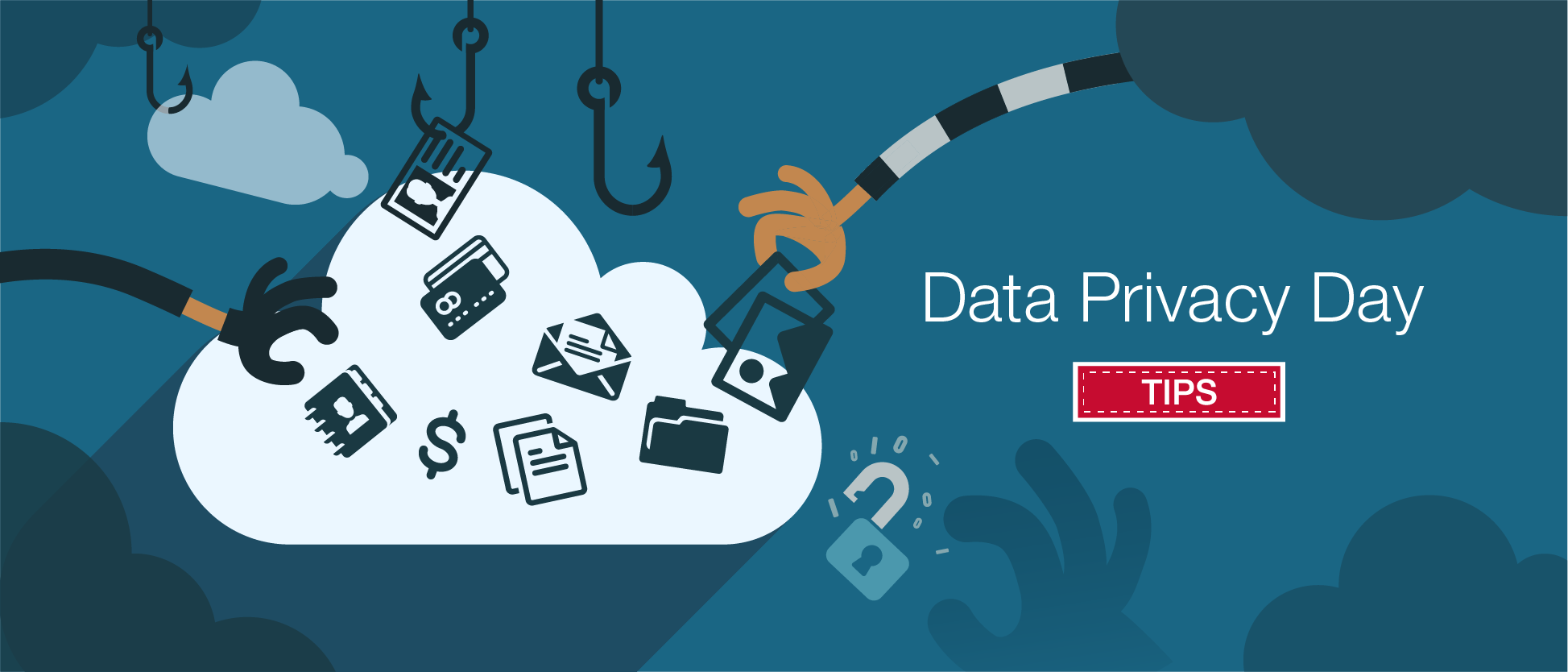
Honoring Data Privacy Day 201

Honoring Data Privacy Day 201
Why You Should Celebrate the Data Privacy Day
January 28, 2019

It’s Data Privacy Day! Do you treat your data privacy as you treat your home? Do you securely lock the doors to keep strangers out, hide the keys in a safe and secure place and keep your eyes peeled for prying eyes? Well, if you don’t, here are some facts to ponder:
- We now live in the digital era where our personal data is constantly collected, used, and shared across multiple devices and networks.
- Phishing attacks are responsible for losses worth billions of dollars for many companies and individuals every year.
- Leaks and breaches happen and, quite often, malefactors collect and create databases with logins and passwords gleaned from leaked information.
- Social Media (Facebook, Twitter, LinkedIn, Instagram etc.) remains the leader in terms of the number of records breached (56 percent) last year, reflecting the high-profile customer data compromises at Facebook and Twitter, involving 2.2 billion and 336 million respectively.
- Advertisers are data hunters, so they might as well use any personal data you unknowingly shared on social media to construct sophisticated profiles of your buying, shopping or browsing habits.
- More than half the world population (3.8 billion people) now uses a smartphone, and about half of all mobile connections around the world are now broadband. The proliferation of mobile devices creates new entry points for exploiting personal confidential information.
- Internet of Things (IoT) security remains is a major concern - by 2020 there will be roughly 200 billion connected devices , aggravating existing privacy challenges.
- Gemalto ‘s Breach Level Index reveals that 4.5 billion data records were compromised worldwide in the first half of 2018, an increase of 133 percent compared to the same period in 2017.
- Cybercrime is expected to cost businesses over $2 trillion total in 2019 as more business infrastructure gets connected, according to Juniper Research data.
- More than 40% of reported security breaches are caused by employee negligence, according to 2018 research by Shred-it.
The above are some reasons why industry, government and nonprofits joined forces every year since 2008 to recognize January 28 as Data Privacy Day and to create awareness about theimportance of privacy and protecting personal information. On this Data Privacy Day we have some valuable experience to share. This helps you protect your privacy and prevent disclosure of sensitive information:

Share with care on the Cloud
Before submitting data about yourself or others, think about how it might be affected by a possible data breach. Follow reasonable security measures to protect individuals’ personal information from unauthorized access.

Lock down your login
Use a unique password for each account. For sensitive resources, turn on the strongest authentication tools available, apply security keys or unique one-time codes through an app on your mobile device. Remember that your usernames and passwords are not always enough to protect key accounts like email, banking and social media.

Keep your devices clean
Update your security software, web browser and operating system to have the best defense against viruses, malware and other online threats. Do not open any email attachments and links if sender is unknown or package is suspicious.

Don’t use work email for personal reasons
Don’t respond to requests for personal or sensitive information via your corporate email. Respect and protect the personal data of colleagues and customers by providing work contact information to online services and online stores only when there is a business need.

Prevent phishing attacks on your personal or financial data
To guard against Phishing attacks, don’t post personal data, like your birthday, vacation plans, or your address or phone number, publicly on social media. Watch out for any URL redirects and spell-check email links before you click or enter sensitive information.

Secure your digital life with a password manager
Having both strong and unique passwords becomes both simple and effective with password managers. Use multi-factor authentication to control access to sensitive systems and data. That should prevent hackers from gaining access into your account, even if they managed to obtain your login and password.
 Security and more security!
Security and more security!
Every device should be secured by a password or strong authentication ‒ finger swipe, facial recognition etc. These security measures limit access to authorized users only and protect your information if devices are lost or stolen.

Secure your Internet traffic
Make sure that HTTPS is used (check the icon “Connected secure” next to the website address in browser) or corporate VPN: thereby, all the traffic that leaves your device will be encrypted.
 Avoid privacy risks on social media
Avoid privacy risks on social media
Be very careful about what you post online, else, you will end up giving the would-be burglars, stalkers, cyberbullies and identity thieves the information they require to cause harm. Always take advantage of the enhanced privacy options which are offered by social media sites, e.g. 2FA enablement, blocking the messages from strangers.
Like, share or repost
Share
Subscribe for blog updates
First name*
E-mail*
Сountry*
СountryAfghanistanAland IslandsAlbaniaAlgeriaAmerican SamoaAndorraAngolaAnguillaAntarcticaAntigua and BarbudaArgentinaArmeniaArubaAustraliaAustriaAzerbaijanBahamasBahrainBangladeshBarbadosBelgiumBelizeBeninBermudaBhutanBoliviaBonaire, Sint Eustatius and SabaBosnia and HerzegovinaBotswanaBouvet IslandBrazilBritish Indian Ocean TerritoryBritish Virgin IslandsBrunei DarussalamBulgariaBurkina FasoBurundiCambodiaCameroonCanadaCape VerdeCayman IslandsCentral African RepublicChadChileChinaChristmas IslandCocos (Keeling) IslandsColombiaComorosCongo (Brazzaville)Congo, (Kinshasa)Cook IslandsCosta RicaCroatiaCuraçaoCyprusCzech RepublicCôte d’IvoireDenmarkDjiboutiDominicaDominican RepublicEcuadorEgyptEl SalvadorEquatorial GuineaEritreaEstoniaEthiopiaFalkland Islands (Malvinas)Faroe IslandsFijiFinlandFranceFrench GuianaFrench PolynesiaFrench Southern TerritoriesGabonGambiaGeorgiaGermanyGhanaGibraltarGreeceGreenlandGrenadaGuadeloupeGuamGuatemalaGuernseyGuineaGuinea-BissauGuyanaHaitiHeard and Mcdonald IslandsHoly See (Vatican City State)HondurasHong Kong, SAR ChinaHungaryIcelandIndiaIndonesiaIraqIrelandIsle of ManIsraelITJamaicaJapanJerseyJordanKazakhstanKenyaKiribatiKorea (South)KuwaitKyrgyzstanLao PDRLatviaLebanonLesothoLiberiaLibyaLiechtensteinLithuaniaLuxembourgMacao, SAR ChinaMacedonia, Republic ofMadagascarMalawiMalaysiaMaldivesMaliMaltaMarshall IslandsMartiniqueMauritaniaMauritiusMayotteMexicoMicronesia, Federated States ofMoldovaMonacoMongoliaMontenegroMontserratMoroccoMozambiqueMyanmarNamibiaNauruNepalNetherlandsNetherlands AntillesNew CaledoniaNew ZealandNicaraguaNigerNigeriaNiueNorfolk IslandNorthern Mariana IslandsNorwayOmanPakistanPalauPalestinian TerritoryPanamaPapua New GuineaParaguayPeruPhilippinesPitcairnPolandPortugalPuerto RicoQatarRomaniaRwandaRéunionSaint HelenaSaint Kitts and NevisSaint LuciaSaint Pierre and MiquelonSaint Vincent and GrenadinesSaint-BarthélemySaint-Martin (French part)SamoaSan MarinoSao Tome and PrincipeSaudi ArabiaSenegalSerbiaSeychellesSierra LeoneSingaporeSint Maarten (Dutch part)SlovakiaSloveniaSolomon IslandsSouth AfricaSouth Georgia and the South Sandwich IslandsSouth SudanSpainSri LankaSurinameSvalbard and Jan Mayen IslandsSwazilandSwedenSwitzerlandTaiwan, Republic of ChinaTajikistanTanzania, United Republic ofThailandTimor-LesteTogoTokelauTongaTrinidad and TobagoTunisiaTurkeyTurks and Caicos IslandsTuvaluUgandaUkraineUnited Arab EmiratesUnited KingdomUnited States of AmericaUruguayUS Minor Outlying IslandsUzbekistanVanuatuVenezuela (Bolivarian Republic)Viet NamVirgin Islands, USWallis and Futuna IslandsWestern SaharaZambiaZimbabwe
I have read and agree with the Privacy policy and the Cookie policy .
I agree to receive email updates from ABBYY Solutions Ltd. such as news related to ABBYY Solutions Ltd. products and technologies, invitations to events and webinars, and information about whitepapers and content related to ABBYY Solutions Ltd. products and services.
I am aware that my consent could be revoked at any time by clicking the unsubscribe link inside any email received from ABBYY Solutions Ltd. or via ABBYY Data Subject Access Rights Form .
Referrer
Last name
Query string
Product Interest Temp
UTM Campaign Name
UTM Medium
UTM Source
ITM Source
GA Client ID
UTM Content
GDPR Consent Note
Captcha Score
Page URL
Connect with us
Also read:
- [Updated] From Data to Drama Utilizing Google Trends in Video Planning for 2024
- [Updated] Unpacking the Performance A Complete Guide to LG BP350 Monitors
- Comparative Analysis of Best HEIC Conversion Tools - A Must-Read Review!
- Discover Personalized Language Powerhouses at OpenAI's Store!
- Effizientes Videokomprimieren Für Formate Wie MP4, AVI Und Mehr Mit Top-Compressoren
- Experience the Joy of Faith: Find and Enjoy Complimentary Gospel Tracks on YouTube
- How to Save Your Favorite Christmas Films on YouTube for Enjoyment Anywhere, Even Without Internet
- In 2024, Forgot iPhone 15 Backup Password? Heres What to Do | Dr.fone
- In 2024, How to Save Time and Energy with Two-Way Recording on Google Meets
- Mac用無料DVDからAVIへ自動変換 - MacX DVD to Avi Converter: シンプルな効率的なマクロSSDコンバータソフトウェア
- Quick Guide: Editing Mac Videos by Eliminating Unnecessary Segments with Precision
- Rapid TikTok Filming Techniques to Enhance Frame Rate
- Resolved! Solutions for Persistent Crashes of Genshin Impact in Windows and MacOS
- Simplified Guide for iOS Users Transforming Images to PDFs
- The Complete Guide to Securely Downloading Premium 8K/4K Films and Episodes
- Top 10 Mac-Compatible Slide Show Creators: Ultimate Guide to Stunning Visual Presentations
- Zoom 会議中断した録画クリップの正確な切り取り方 - How to Accurately Trim Interrupted Zoom Meeting Recordings
- Title: Honoring Data Privacy Day 201
- Author: Matthew
- Created at : 2024-09-23 20:55:25
- Updated at : 2024-09-30 18:17:14
- Link: https://solve-latest.techidaily.com/honoring-data-privacy-day-201/
- License: This work is licensed under CC BY-NC-SA 4.0.